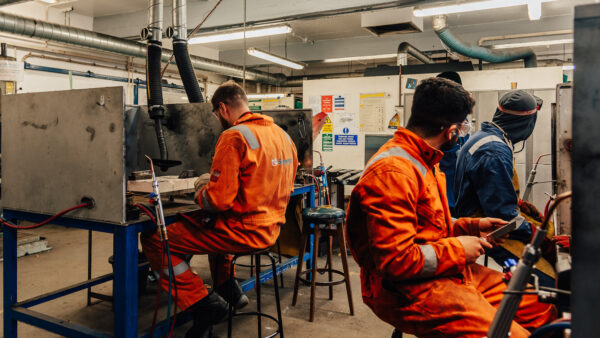An index released today has for the first-time ranked employers in construction according to their performance on achieving gender equality
The Equity Index 2022/23 uses official data on average salaries, bonuses, and pay at every level to provide insight into more than 10,000 companies and organisations.
It has been produced by Lead 5050, a cross-industry accreditation organisation which uses data to promote equality.
BDW Trading – part of Barratt Developments – has emerged top of the rankings among employers working in construction, ahead of Redrow Homes in second place and Miller Homes in third. There are 260 construction companes on the full index.
BDW has an overall mean pay gap of 4.1% and women are well represented at all levels of pay.
According to the Index, the overall top 10 construction employers for gender equality are:
David Thomas, chief executive of Barratt Developments, said: “We are proud to be ranked as the top company within the construction sector for gender equality, but we know we have to keep improving.
“We are proud to be ranked as the top company within the construction sector for gender equality, but we know we have to keep improving.u0022
“Traditionally the construction industry has consisted of a majority male workforce, and our business is no different. However, we are pleased to have been able to move the dial on gender representation over the last five years.
“Our gender pay gap continues to be better than the national average but we cannot stand still. Through such elements as talent programmes, employee networks, succession planning, early careers and mentoring we are working hard to be a diverse and inclusive employer.”
Workplace equality
Researchers have also used the data to identify trends in workplace equality across different economic sectors.
For employers working in construction, the median score is just 30.1, making it significantly worse than the average sector, which is 51.5.
Other sectors which score poorly include motoring (40.3) and finance and insurance (37.8).
Leanne Linacre, CEO of Lead5050, said: “While the UK is a world leader in ensuring employers provide transparent data on gender-related pay, after years of progress, the gender pay gap for full-time workers has increased.
“At the same time, the number of job vacancies rose to a record level last year whilst the cost-of-living crisis continues to bite, adversely affecting women who are having to reduce their hours of work because of the cost of childcare.
“Closing the gender pay gap would strengthen the economy as higher wages would encourage more women to either enter the labour market or extend their working hours.
“Gender pay equality must become a key priority of the construction sector if we want to make construction not just fairer but stronger, too.”
Closing the pay gap
The index includes every organisation in the UK – whether public or private sector – that has more than 250 employees, as well as a number of smaller employers who have chosen to submit data on gender-based pay.
The Index’s data team uses these employers’ public submissions to identify their median gender pay gap, the mean gender pay gap, pay across different quartiles, and bonus payments. They use a weighted algorithm to convert this to an overall score that reflects how closely each employer is to an “ideal” state of complete gender pay parity.
Typically, gender pay gap rankings use just one data point – overall median pay for men and women within an organisation.









